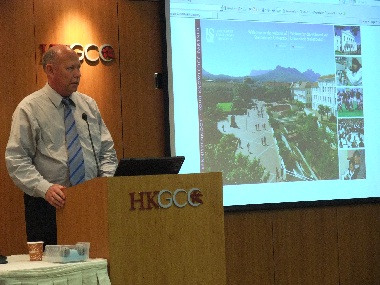The Society is very pleased to welcome back Dave Snowden from the UK to talk at the March monthly meeting of the Society. The event will held in our usual location, Conference Room 1, 22/F, United Centre, 95 Queensway (Admiralty MTR Station).
Dave will talk about the progress of KM since it became part of the Management agenda for organizations in the 1990s. He will highlight the various stages of thought leadership in KM and what has been achieved and what has been learned. Dave will conclude with his views on where KM is headed, with plenty of time for discussion with the participants.
Dave Snowden is the Founder and Chief Scientific Officer of Cognitive Edge and has pioneered a science based approach to individual and collective decision making in organisations. His article A Leaders Guide to Decision Making was the HBR cover article in November 2007 and won an Academy of Management award as the best practitioner paper in the Organisational Development Division of the Academy of Management that same year.
